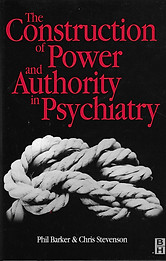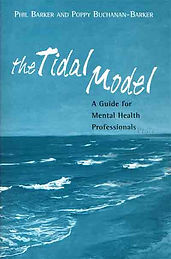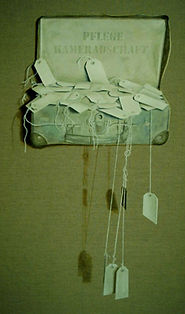
The Life
Born Phil Barker in Dunfermline, Scotland, McLoughlin spent much of his early years in the studio of his grandfather, the artist, stage ventriloquist and conjuror - Phil McLoughlin . Here, he first realised that art could be made by anyone, anywhere, with anything. Later, he took his grandfather’s name as his artistic pseudonym in recognition of this key influence in his life.


McLoughlin's artistic ambitions began in the late 1960s, supported by various jobs: iron foundry labourer, jute mill worker, railway porter and, most significantly, psychiatric nurse.
With no formal art qualifications, he achieved some singular successes: Scottish Young Contemporaries (1970); Edinburgh Festival Fringe (1971) ; and the St Andrews Festival (1972).
In 1974 he won the prestigious Pernod Prize (as Phil Barker) at the City Art Centre in Edinburgh. The Pernod Company donated this work later to the McManus Galleries Collection in Dundee.
A chance encounter with Joseph Beuys in Edinburgh in 1970 led him to abandon painting for constructions and ‘performance’ work and a new life as a 'conceptual artist'.
In the mid '70s he became a member of the Scottish Arts Council supported artist’s collective – Dundee Group Artists Ltd. He exhibited widely with the DGA from 76-79, including the international 'Junk into Art- Art into Junk' show in Dundee and Paris.


By the mid-1970s he had also begun training as a psychotherapist and in 1979 began a doctor of philosophy degree. The following year, after being offered his first book contract, he decided to give up art to focus on psychiatry and psychotherapy.
On completion of his doctorate in 1986 he began yet another life as a university academic becoming Director of Studies at the Department of Psychiatry in Dundee and gaining his first professorial appointment in 1992 at the University of Newcastle
McLoughlin spent the next 20 years as a university professor and psychotherapist in England, Australia, Japan and Ireland. He published over 20 books and, with his wife and colleague, Poppy Buchanan-Barker, became an international authority on psychotherapy and mental health recovery.
In 2008 they were honoured jointly with the Thomas Szasz Award for Contributions to Civil Liberties at New York University.


In 2006, while at Trinity College Dublin he lodged in the quad next door to where Samuel Beckett had lived while a lecturer in the 1930s. During the Beckett Centenary Celebration he experienced what, later, he called his ‘Trinity epiphany’. He realised that most of the people he met as a psychotherapist were shadowed, like Beckett’s characters, by ‘the ineffable’: an intuitive knowledge of what haunted them, which they could not put into words.
The next day he resigned his professorship and returned to Scotland to explore, through art, the 'ineffable' which shadowed his own life.
Later, he said that: "we all lead multiple lives. The idea of the singular 'person' is a myth, a comforting illusion. There is more going on than we can ever appreciate - or hope to understand."
McLoughlin did not pick up where he had left off in 1980, with conceptual art, but chose to be more radical - and paint - something he had not done for almost 40 years.
His first exhibit was at the SSA exhibition in Edinburgh in 2010 - over 30 years since he had last shown with the Dundee Group. Two years later he was elected a Professional Member of the Society of Scottish Artists.


McLoughlin belongs to no school or movement. He owes no allegiances. Given his life story this is unsurprising. After 40 years as author, academic and psychotherapist, he has few illusions about life or himself. This might explain the role of illusion and paradox in his work. What you see is never what you get.
This also provides a link with his only mentor, his grandfather - 'Old Phil ' - the ventriloquist and conjuror. Reality is always nine-tenths magic.
Once completed, the work becomes a 'stand alone' and needs no comment, far less interpretation from the artist. This is the viewers' task - to make 'meaning' of the work, framed by their own unique experience.
The McLoughlin ethic is clear:
-
"the artist must withdraw if the work is to be revealed